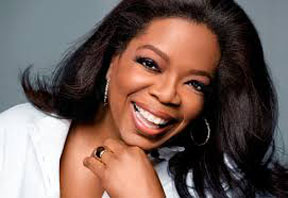(Reuters) – A luxury shop owner in Zurich denied that racism was involved when U.S. talk show host Oprah Winfrey was discouraged from buying a 35,000 Swiss franc ($38,100) crocodile handbag.

Winfrey, recently named the world’s most powerful celebrity by Forbes, was in Zurich for the wedding of singer Tina Turner when the incident occurred last month.
The broadcaster said in two U.S. interviews that a sales assistant refused to show her the designer handbag, saying it was “too expensive” for the African-American celebrity and steering her towards other, cheaper purses.
Luxury shop Trois Pommes denied discriminating against Winfrey, who asked to look at a “Jennifer” purse, designed by Tom Ford and named for actress Jennifer Anison. The owner put the incident down to a language barrier.
“This is an absolute classic misunderstanding,” shop owner Trudie Goetz told Reuters on Friday.
The sales assistant wanted to show Winfrey that the purse was also available in other materials, which may have given the TV host the impression the shop didn’t want to sell her the purse, Goetz said.
“Of course that’s not the case. Who wouldn’t want to sell a purse for 35,000 francs?” Goetz said. Winfrey, 59, who runs her own TV network, earned $77 million from June 2012 to June 2013, cementing the No. 1 spot on the Forbes list last month, the fifth time she has headed the annual ranking of 100 celebrities.
The incident unleashed a volley of criticism in Switzerland, where revelations this week that asylum-seekers are not allowed free movement to public sports venues like municipal pools caused a stir. The Swiss tourism association said it regretted the incident and was “never happy when our guests’ feelings are hurt”.
Winfrey is currently promoting her return to the big screen in Lee Daniels’ “The Butler,” which also stars Forest Whitaker.
Switzerland has contradictory attitudes towards foreigners: on the one hand, it employs large numbers of foreign professionals in big industries like finance, which accounts for roughly 6 percent of gross domestic product.
On the other, the influential Swiss People’s Party has long made opposition to immigration a key plank of its electoral appeal.





